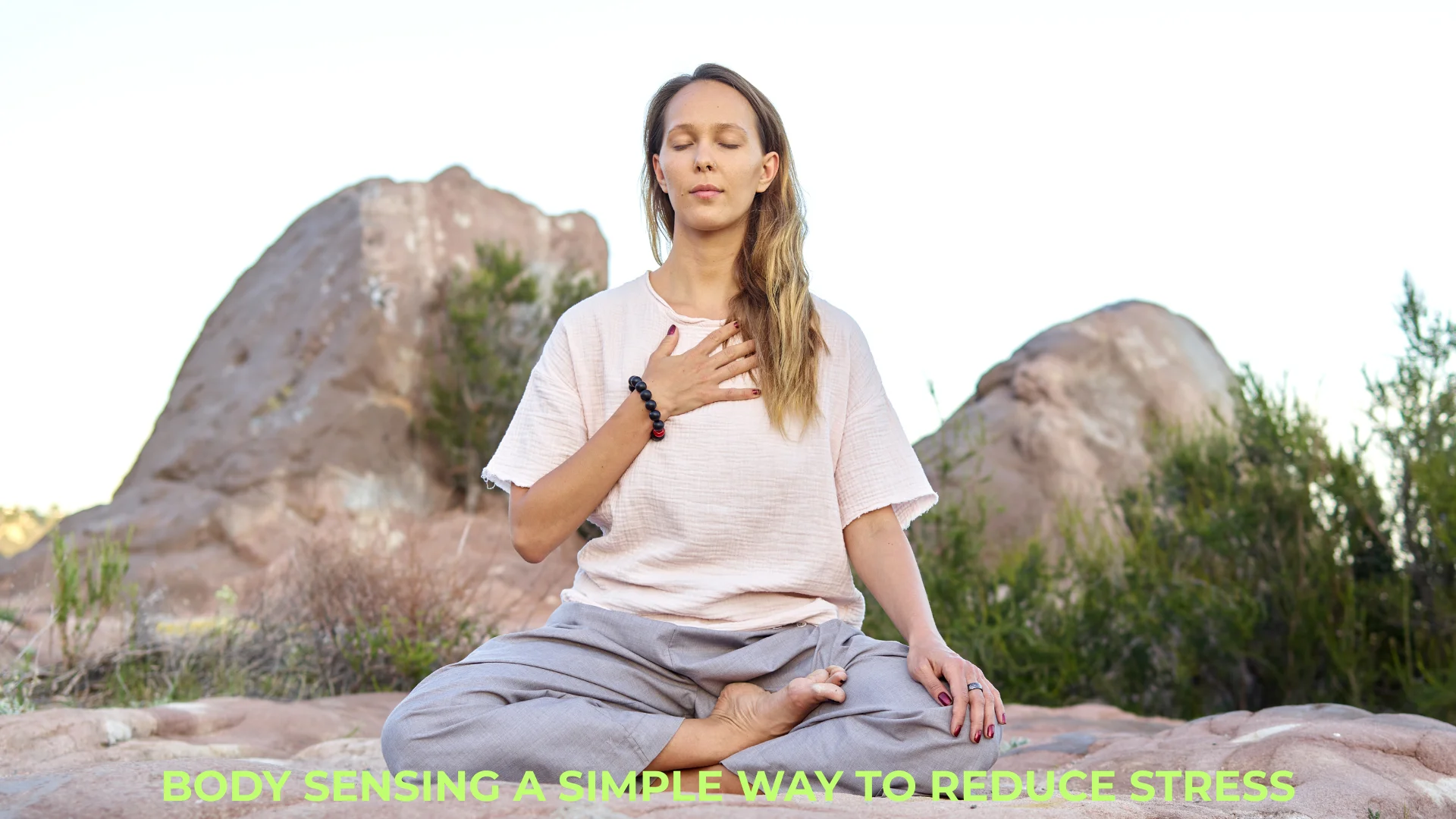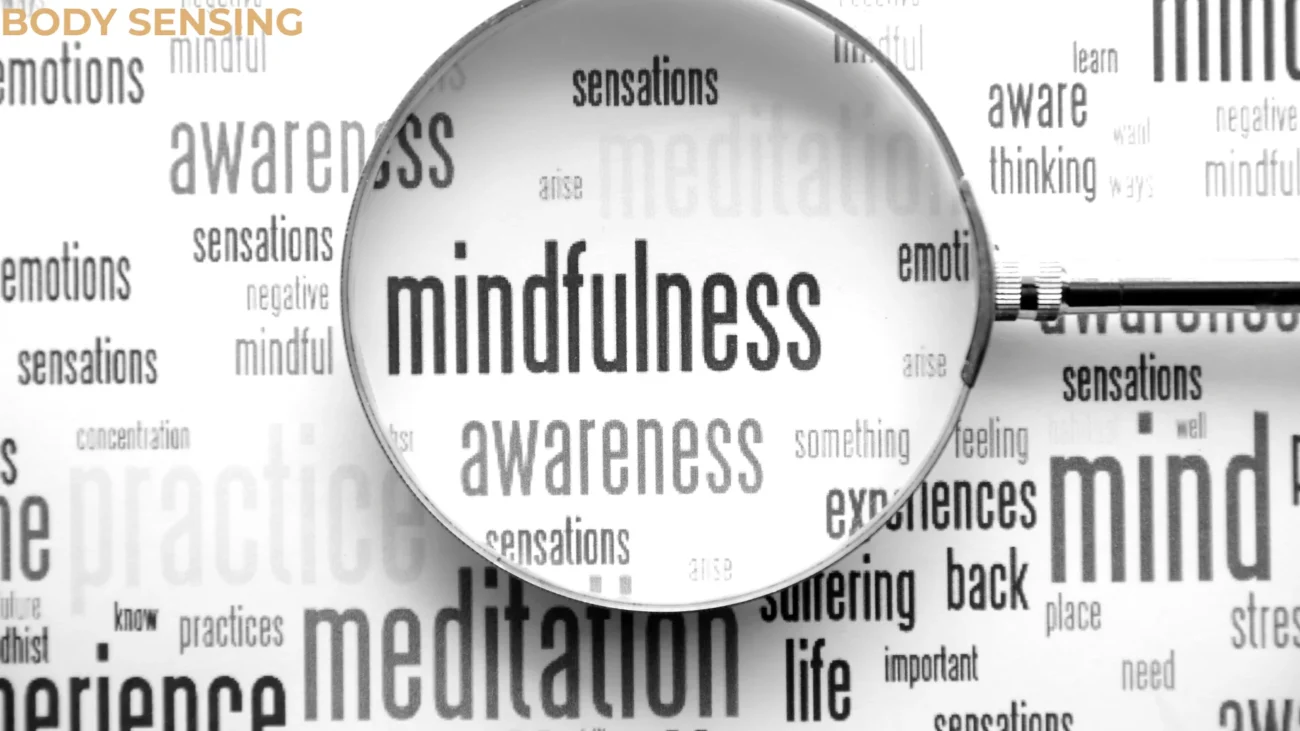Blog
Body Sensing: A Simple Way 2 Reduce Stress

You know that feeling when your shoulders are practically up to your ears, but you don’t even notice until someone points it out? Or when you’ve been clenching your jaw so hard that your dentist gives you the look at your next checkup? Yeah, we’ve all been there. Our bodies are constantly trying to tell us something, but most of us are too busy scrolling through our phones or worrying about tomorrow’s presentation to listen. Here’s the thing: your body is actually pretty smart. It knows when you’re stressed way before your brain catches up. And there’s this incredibly simple technique called body sensing that can help you tap into what your body’s trying to tell you. No fancy equipment needed, no expensive therapy sessions, just you and your trusty nervous system having a little chat.
What Body Sensing Actually Means in Plain English
| Aspect | Description |
|---|---|
| What It’s Called | Body sensing, body awareness, or somatic awareness. |
| Simple Definition | Paying attention to what’s happening inside your body right now. |
| Time Focus | Present moment only – not yesterday’s backache or tomorrow’s potential headache. |
| How to Think About It | Like doing a quick inventory check of your body. |
| Key Questions to Ask | • Where do you feel tense?<br>• What’s comfortable?<br>• Are you breathing like you’re running a marathon even though you’re just sitting? |
| What It’s NOT | • Not meditation<br>• Not yoga<br>• Doesn’t require sitting in uncomfortable positions. |
| Equipment Needed | None – no special setup required. |
Why Your Body Holds Onto Stress Like a Grudge
Here’s something wild: your body doesn’t actually know the difference between a legitimate threat and your overflowing inbox. When stress hits, your body goes into the same fight-or-flight mode whether you’re facing a bear or just facing your boss. Your muscles tighten up, your heart rate increases, and your breathing gets shallow. The problem is that while our ancestors might’ve run away from that bear and released all that tension, we just sit there and let it accumulate. Day after day, stress after stress, until we’re walking around like human stress balls. Your body remembers all of it, storing tension in your neck, shoulders, back, and jaw like some kind of terrible souvenir collection.
How to Actually Do Body Sensing Without Making It Weird
Okay, so here’s where we get practical. Body sensing isn’t complicated, and you can literally do it anywhere. I’ve done it in the grocery store line, during boring meetings, and yes, even while stuck in traffic (though please keep your eyes on the road). Start by finding a position that feels relatively comfortable. You can sit, stand, or lie down – whatever works for you in that moment. Now, take a deep breath and just notice where your attention naturally goes in your body. Maybe it’s that tight spot between your shoulder blades or the way your stomach feels a bit queasy. Don’t try to change anything yet. This isn’t about fixing; it’s about noticing. Scan through different parts of your body like you’re a detective looking for clues. How do your feet feel? What about your legs? Your lower back? Keep moving up through your body, not judging what you find, just acknowledging it.
The Magic Happens When You Stop Trying So Hard
Here’s where body sensing gets interesting. Once you’ve noticed where you’re holding tension, you don’t have to do anything dramatic. Just acknowledging it often helps it release naturally. It’s like when someone asks if you’re okay and suddenly you realize you’re not, and just that realization helps a bit. You can also try gently moving or stretching the tense areas. Not forcing anything, just gentle exploration. Sometimes I’ll roll my shoulders a few times or wiggle my toes. Sounds silly, but it works. Your body often knows what it needs if you give it a chance to communicate.
Why This Works Better Than Just Ignoring Your Stress
Most of us deal with stress by either powering through it or distracting ourselves. We binge-watch shows, eat our feelings, or just keep ourselves so busy we don’t have time to notice we’re drowning. Body sensing takes the opposite approach – it asks you to actually tune in instead of checking out. Research shows that people who regularly practice body awareness have lower stress levels and better emotional regulation. They’re not bottling everything up until they explode at the grocery store clerk who’s just trying to do their job. They’re catching stress early, when it’s still manageable.

Making Body Sensing Part of Your Actual Life
Body sensing doesn’t require you to add another thing to your already overwhelming to-do list. You can practice it while you’re waiting for your coffee to brew, during commercial breaks, or right before bed. Set small reminders throughout your day. Maybe every time you wash your hands, you take a quick mental scan of your body. Or when you’re waiting at a red light, you notice where you’re holding tension. These tiny check-ins add up over time, creating a habit of awareness that can change how you experience stress. Some people like to pair body sensing with activities they already do. Check in with your body during your morning shower, while you’re cooking dinner, or during your commute. The key is making it feel natural, not like another obligation.
Common Mistakes People Make When Starting Out
Look, I’m going to be real with you – most people try body sensing once, don’t immediately achieve enlightenment, and give up. That’s not how this works. It’s a skill, and like any skill, it takes practice. You’re not going to nail it on day one, and that’s completely fine. Another mistake is trying to force relaxation. If you notice tension and immediately think “I need to fix this right now,” you’re missing the point. Sometimes just noticing is enough. Your body’s pretty good at self-regulation when you give it the chance. Also, don’t expect body sensing to solve all your problems. It’s not magic. If your life is genuinely stressful, body sensing won’t make your deadlines disappear or fix your relationships. But it can help you navigate those challenges without storing all the stress in your body like some kind of emotional storage unit.
For those who need the facts, body sensing actually changes how your brain processes stress. It activates your parasympathetic nervous system, which is basically your body’s chill-out mode. Studies have found that regular body awareness practices can lower cortisol levels, improve sleep quality, and even help with chronic pain. Your vagus nerve, which runs from your brain through your body, plays a huge role in this. When you tune into your body sensations, you’re actually stimulating this nerve, which helps regulate your stress response. Pretty cool for something that doesn’t cost anything and doesn’t require a prescription. I’ve talked to people who’ve used body sensing to deal with everything from anxiety to chronic pain to just general life overwhelm. One friend described it as finally learning to speak her body’s language instead of just ignoring it until something breaks down completely. The results aren’t always dramatic or immediate. Sometimes it’s subtle – you realize you’re sleeping better, or you don’t get as many tension headaches, or you notice you’re not snapping at people as much. These small changes compound over time into something that improves your quality of life.
Common Mistakes People Make When Starting Out
Integrating body sensing into your daily wellness routine doesn’t mean overhauling your entire lifestyle. It’s actually about making small, sustainable changes that fit naturally into how you already live. Whether you’re someone who’s into health and fitness or you’re just starting to think about your well-being, body sensing meets you where you are. Think of it as a wellness practice that doesn’t require special equipment or a gym membership. Unlike some wellness trends that demand massive lifestyle changes, body sensing adapts to your life rather than forcing you to adapt to it. You can do it in your pajamas, in your work clothes, or even in that questionable outfit you wear when nobody’s watching.

Your Body’s Been Waiting for You to Listen
Body sensing is about reconnecting with yourself in a world that’s constantly pulling your attention in a million different directions. Your body’s been trying to help you manage stress all along; you just might not have been listening. So the next time you’re feeling overwhelmed, try this: stop for just a minute and check in with your body. Notice what’s there without judging it, without trying to fix it immediately. You might be surprised at what you discover when you finally tune in to the one thing that’s been with you your whole life – your own body.












